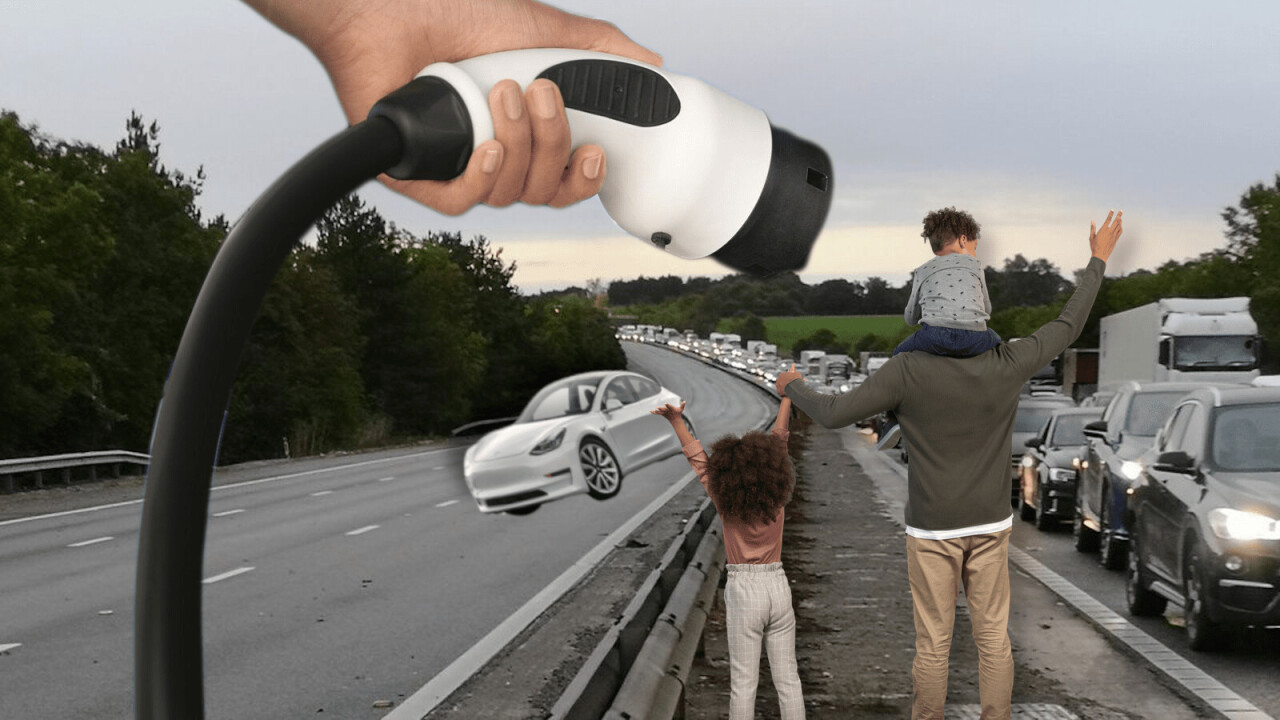
Even though electric vehicles (EVs) produce no emissions as they’re driven, many detractors argue that they’re not as environmentally sound as they seem if they’re charged using electricity generated by burning fossil fuels. But new research shows that isn’t always the case.
According to an article published in the journal Nature Sustainability, a group of researchers from the Netherlands and England, found that EVs charged by coal fueled power stations still produce fewer emission overall than internal combustion engine (ICE) vehicles.
[Read: UK gets its first fully electric avenue to charge EVs on the street]
The researchers say that this principle applies to 95% of the world.
According to the research, over their lifetime, electric cars produce 70% less emissions than petrol cars in countries where most electricity comes from renewable sources and nuclear. In the UK, that figure is around 30%, BBC reports. As more countries move to renewable energy, the situation will only improve.
Only in countries where national grids are almost exclusively powered by oil and coal, like Estonia, India, and Poland, is it worse for the environment to drive an electric vehicle.
As The Driven points out, the study took into account the cars that each country drives at the moment, and considers the net effect of drivers switching to EVs comparable to the ICE cars they currently drive.

Australia, for example, produces similar levels of emissions to Poland, but because the car market has a higher share of large-engine, high-end vehicles, the switch to EVs would have a more dramatic impact at lowering overall emissions in the country.
“In other words, the idea that electric vehicles or electric heat pumps could increase emissions is essentially a myth,” lead author and environmental scientist at Radboud University Florian Knobloch said.
In some capacity, we’ve known this for a while.
Many EV detractors also argue that because of how resource intensive it is to produce batteries, from cradle to grave, electric cars are worse for the environment than combustion counterparts.
However, a study from the Union of Concerned Scientists — from way back in 2015 — found that over their lifespan, EVs are far better for the environment. According to the research, a typical EV offsets the emissions generated from its production well within 16 months of ownership.
With this most recent research, it shows that even if that EV is then powered by coal generated electricity, it’s still better than driving a combustion engine car in terms of emissions. This is great news for EV aficionados all over the world and a key piece of information for governments to realize their collective emission goals.
Get the TNW newsletter
Get the most important tech news in your inbox each week.





